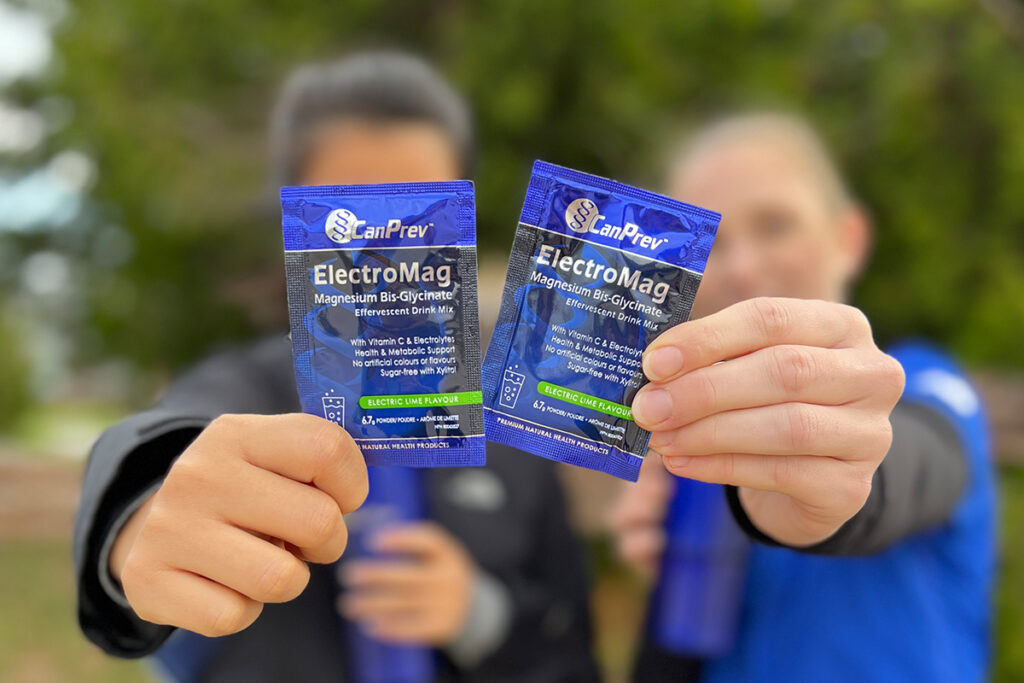Magnesium’s role in muscle health and managing cramps
Athletes and workout fanatics may be all too familiar with the unwelcome guest–muscle cramps. These sudden and often painful contractions can interrupt the smooth flow of an active lifestyle. Fortunately, there’s a promising solution to those nagging aches and pains: magnesium.
Muscles need magnesium in order to relax after contracting. It is essential for proper muscle function and acts to relieve tight, sore and cramped muscles.
What causes muscle tension?
Ever wondered what makes your muscles feel like they’re in a perpetual knot? A lack of magnesium in your body means your muscles are more prone to contracting and inflammation.
Muscle contraction is the classic example of how magnesium and calcium balance each other in the body. Insufficient magnesium causes calcium to stay in muscle and nerve cells longer, causing overexcitation of the muscles and nerves. This can lead to cramps, spasms, and other muscle related issues.
These discomforts often strike when pushing muscles to their limits, losing fluids through intense sweating, experiencing stress, or simply holding a position for a long time. Such scenarios highlight the importance of an adequate supply of magnesium in preventing and alleviating the discomfort associated with muscle cramps.
How does magnesium relieve muscle cramps and tension?
Magnesium works directly in the cells of our muscles, helping to alleviate various muscle cramps spanning from PMS discomfort, to nighttime leg cramps, those linked to pregnancy, exercise, and beyond.
These cramps commonly stem from an overload of calcium in the muscles. Magnesium steps in to expel excessive calcium from our cells, and not only prevents the buildup of calcium but also works its magic, re-absorbing any unwanted calcification that may have already taken place.
The relief is often swift. Yet, for those grappling with chronic magnesium deficiencies, a consistent daily increase in magnesium levels might be necessary for complete relief from those pesky and sometimes unbearable muscle cramps.
Can magnesium support athletic performance?
Studies indicate that maintaining optimal levels of magnesium can actually support your performance during exercise. This boost often translates to increased strength and power, along with enhancements in abilities like extension, flexion, rotation, and even jumping.
And magnesium isn’t just there for the heavy lifts; it’s also a crucial player in your recovery game. It aids in replenishing energy stores and soothing tired muscles, promoting a quicker bounce back after intense physical activity.
The next time you do a high-intensity workout at the gym, see if you experience any muscle cramps. Those might be an acute sign your muscle cells are not able to restore calcium balance. Take some magnesium and see what happens.
Find the right magnesium for your muscles
Effective supplementing of magnesium depends on two factors: how much you consume and how much your body can absorb. How much you can absorb depends on your lifestyle, your diet, stress levels, medications you may be taking and age.
Magnesium Bis-Glycinate 200 Gentle is a unique magnesium-glycine complex that provides a therapeutic 200mg of pure, elemental magnesium with every vegetable capsule. It works to restore magnesium to optimum levels and help fuel all the important functions it’s called on to perform. A fair balance of potency, gentleness and absorption, this formula is great for most lifestyles.
And then there’s Magnesium Malate, which is often recommended by naturopathic doctors for improved metabolic and energetic function. If you’re feeling chronically fatigued and need that extra energy support, this formula may be the one for you.
This statement has not been evaluated by the Food and Drug Administration. This product is not intended to diagnose, treat, cure, or prevent any disease.








